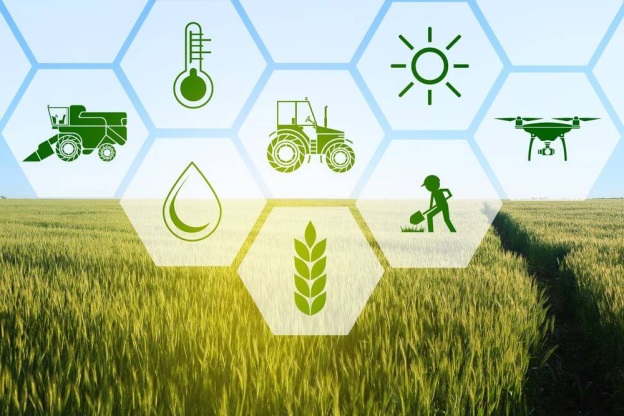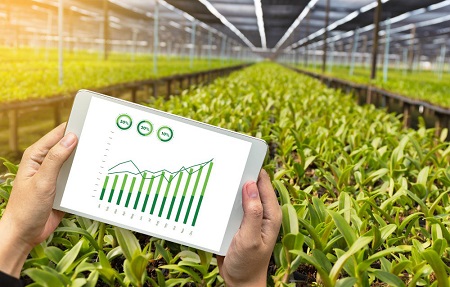The agriculture industry has long been regarded as the backbone of the global economy. However, as the world becomes more connected and technology-driven, traditional farming practices are being transformed. One of the most significant advancements in this area is the integration of Customer Relationship Management (CRM) systems, with Salesforce CRM leading the charge. From farm to market, Salesforce CRM is revolutionizing agriculture by streamlining operations, enhancing communication, and improving supply chain management.

Enhancing Farm Management
Farm management is a multifaceted task that requires effective planning, coordination, and resource management. Salesforce CRM helps farmers and agribusinesses centralize their operations, allowing them to manage everything from crop planning to equipment maintenance in one system. By leveraging the cloud-based capabilities of Salesforce, farmers can access real-time data on soil conditions, weather forecasts, and crop health. This data-driven approach enables more informed decision-making, leading to higher crop yields and reduced waste.
Furthermore, Salesforce CRM facilitates better resource allocation. For example, farmers can track their inventory of seeds, fertilizers, and machinery to ensure they are fully equipped for each planting season. The system also helps monitor the financial health of the farm, enabling owners to manage expenses and optimize revenue.
For larger agribusinesses, Salesforce CRM provides a comprehensive view of multiple farms or locations, making it easier to manage large-scale operations. With the ability to track production, labor, and logistics in real-time, companies can ensure that every aspect of their agricultural business runs smoothly.
Strengthening Supply Chain Management
The agricultural supply chain is notoriously complex, involving multiple stakeholders from farmers to distributors to retailers. Salesforce CRM simplifies this process by providing an integrated platform for managing the entire supply chain. Farmers can track the progress of their crops from the field to the market, ensuring that they meet quality standards at every stage.
Salesforce CRM also helps improve communication between farmers and their supply chain partners. With real-time data sharing, stakeholders can collaborate more effectively, reducing the risk of delays and miscommunication. For example, a farmer can notify distributors immediately if there is a change in harvest schedules, allowing them to adjust their logistics accordingly.
In addition, Salesforce CRM helps streamline regulatory compliance. The agriculture industry is heavily regulated, with strict guidelines on everything from pesticide use to food safety. Salesforce’s customizable features allow farmers to track their compliance with these regulations, ensuring they meet all legal requirements. This not only protects the farm’s reputation but also reduces the risk of costly fines and penalties.
Enhancing Customer Engagement
Customers have never been as aware and demanding as they are in today’s marketplace. This includes wanting increased transparency regarding product origin and production, down to their very food. Salesforce CRM empowers farmers and agribusinesses to meet these expectations by opening a clear channel of communication with the customer.
With Salesforce CRM, farmers can now provide consumers with detailed information about farming practices, sustainability efforts, and quality. It is not only useful for gaining the trust of the consumers but also for differentiating products within a very competitive marketplace. Besides, Salesforce CRM facilitates the means for person-to-person marketing—that is, farmers are able to target customer segments with messages and offers personally tailored to the target customers.
For example, in agritourism, the Salesforce CRM allows control over customer reservations, feedback, and participation. Be it tracing farm visitors or corporate partnerships with events against them, the CRM system facilitates a smoother and more effective interaction with customers.

Role of Salesforce Implementation Partners
A customer relationship management system as robust as Salesforce requires expert guidance to be implemented in the agricultural industry. The Salesforce Implementation Partner work collaboratively to come up with customized solutions for the unique needs of the agricultural business, tailored to include farm management software and process smoothing in their supply chain that ensures the CRM system will mesh seamlessly with existing operations
One-off training and support are also provided by these partners to farmers and agribusinesses in getting the most out of a CRM investment. Their expertise will ensure that the system is fully optimized to improve efficiency and drive growth.
The Future of Agriculture with Salesforce CRM
With the continual evolvement of the agriculture world, the role of technology remains growing in significance. Leading this move is Salesforce CRM, helping farmers and agribusinesses in today’s increasingly competitive and complicated marketplace. In enhancing correspondence, tidy operations, and far better supply chain management, Salesforce CRM sets the trend for the agricultural sector.
For instance, CRM in Dynamics 365 Customer Engagement is an alternative having strong capabilities that offer business solutions for the agricultural sector based on new requirements. The business of farming is going to be evidently in digital form, no matter if it is Salesforce CRM or Dynamics 365 that you choose.